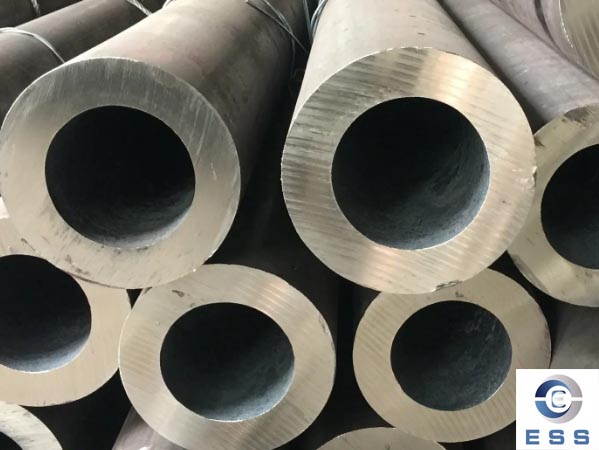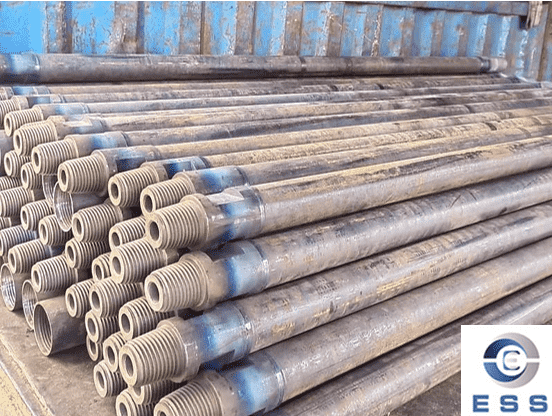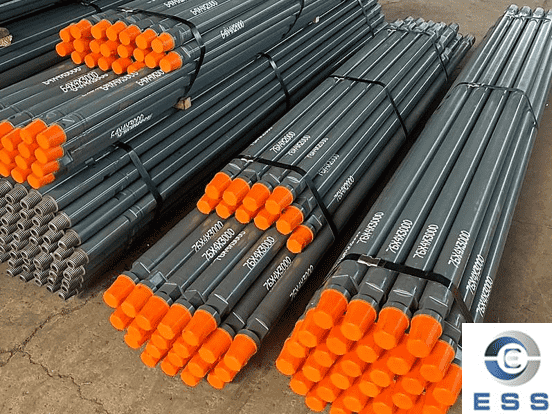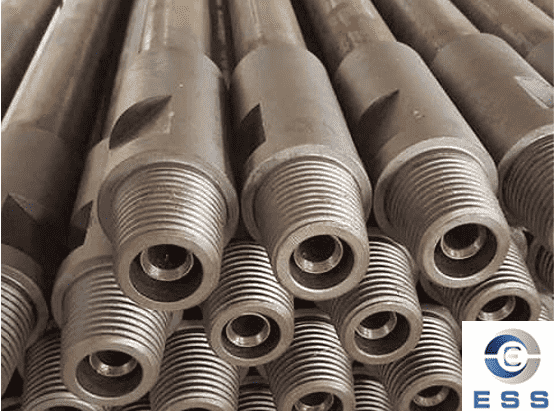The air oxide film on the surface of the thick-walled seamless steel pipe is thin and high in density, which is not easy to remove. Under normal circumstances, the thick-walled steel pipe will cause 0.2-0.3mm of oxide scale in the heat treatment equipment, and the casting defects in this range can be With the removal of galvanized iron by air oxidation, if the defects are not within this range, the surface defects on the billet will inevitably be brought into the final product if they are not treated in all aspects. Thick-walled seamless steel pipes generally cannot use flame to eliminate the surface defects of the billet. Flame elimination will cause changes in the composition and crystal phase composition of the area where the billet is eliminated, which will affect the corrosion resistance of the stainless steel sheet. Therefore, industrial equipment elimination is a widely effective method for the metal surface solution of stainless steel sheets. The general methods include air oxidation galvanized iron cleaning mechanical treatment, water explosion, shot blasting machine elimination.

1. Air oxidation galvanized iron cleaning mechanical treatment
The air oxidation galvanized iron cleaning machine is mainly composed of steel brush roller, controller equipment, high pressure water system, refrigeration system and clamping equipment. Two rollers with stainless steel wires (called steel brush rollers) are installed on the roller seat, and the steel brush rollers run at high speed in the opposite direction of the slab running. Surface air oxidation galvanized iron.
The air oxidation galvanized iron cleaning machine can use more steel grades, but the elimination of air oxidation galvanized iron is not thorough enough.
2. Water burst pool
The water blast pool uses the refrigerating and cooling circulating water at room temperature as the cooling chemical substance, puts the high-temperature billet into the water storage tank, and uses "water blast" to remove the air-oxidized galvanized iron on the surface of the billet. The basic concept is that when the water encounters the high-temperature billet, it vaporizes in an instant, resulting in a "water explosion", resulting in a lot of high-pressure steam. The impact force of the steam acts on the surface of the billet to cause the air-oxidized galvanized iron to fall. In addition, the air-oxidized galvanized iron on the billet and its surface is greatly cooled by water under high temperature conditions, resulting in a shrinkage stress field. The specifications of the stress field are different between the billet and the air-oxidized galvanized iron on its surface.
Air-oxidized galvanized iron will crack and fall off.
The water explosion pool has low investment projects, less maintenance and low cost of production, processing and operation. However, fewer steel grades can be used, and only a part of austenitic stainless steel sheets, such as 301, 304 and other steel grades, can be used.
3. Elimination of shot blasting machine
Shot blasting machines are mostly used to eliminate air oxidation of galvanized iron on the surface of the billet. The shot blasting machine is mainly composed of a sandblasting and derusting room, a grinding rod, a sandblasting and derusting conveying system, a shot removal machine and equipment, a shot compensation device, a dust collector, an air inlet and an automatic control system for electrical equipment. The basic principle is to use the spring steel shot thrown by the shot blasting machine to destructively oxidize the surface of the galvanized iron to the surface of the billet to make it fall.













 Eastern Steel Manufacturing Co.,Ltd not only improve product production and sales services, but also provide additional value-added services. As long as you need, we can complete your specific needs together.
Eastern Steel Manufacturing Co.,Ltd not only improve product production and sales services, but also provide additional value-added services. As long as you need, we can complete your specific needs together.










